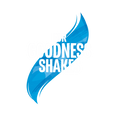What fuels a healthy lifestyle?
Getting to know the key nutrients your body needs to support and fuel a healthy, active lifestyle...
The human body is a complex system of intricate parts. With almost 80 organs, 10 major, life-supporting systems, 206 bones and no fewer than 37.2 trillion (yes TRILLION) cells, keeping everything in healthy, working order may seem like an overwhelming task.
It is no secret — or at least it shouldn't be — that one of the simplest ways to maintain a healthy lifestyle is to stay active. Exercise strengthens bones and muscles, releases mood and brain-boosting endorphins and directly reduces your risk of disease. Knowing how to fuel your exercise and stay active is therefore pivotal. There are a number of key nutrients that, together, provide your body with the support and fuel needed for safe and sustainable exercise.
Our shakes have been crafted specifically to contain the priority nutrients that are needed to fuel a healthy, active lifestyle. In this guide, we go through the top 6 nutrients your body needs to get you up and moving (all of which you'll conveniently find included in our Protein shakes!).
What nutrients does a healthy body need?
1. Protein
What is protein?
A protein is a long chain of amino acids, which you can find in every cell in your body. Protein molecules don't have one particular 'make-up', as their structure and function depends on the specific sequence that the amino acids bond together in. There are 20 different kinds of amino acids, so you can start to imagine the vast quantity of different combinations possible!
What does protein do?
All proteins serve different purposes, from transporting nutrients throughout the body to repairing, or even creating, cells. A protein-rich diet can boost your metabolism, keep your organs functioning as they should, repair your muscles after strain and even improve your bone mass... making breaks and injuries less likely.
For a full overview of What Protein Does For Your Body, check out our beginner's guide:
Signs you don't have enough protein...
The key indicators that your body is lacking the protein it needs are:
- Regularly feeling tired, weak and fatigued
- Still feeling hungry, even with sizeable meals
- It takes you a while to get over injuries or illnesses
(Source)
2. Vitamin D
What is Vitamin D?
Also known as "the sunshine vitamin", Vitamin D is created by the body when the skin is exposed to direct sunlight. It is also found in a small number of foods, such as oily fish, red meat and egg yolks (source). It is what's known as a fat-soluble vitamin, meaning it is absorbed alongside fats in your diet and stored in your body's fatty tissue and in the liver.
What does Vitamin D do?
Vitamin D's main role is to regulate the amount of calcium and phosphate in the body, therefore helping to keep bones, teeth and muscles healthy. It also helps support good immune function and reduce your risk of autoimmune diseases, such as diabetes, asthma and rheumatoid arthritis.
Signs you don't have enough Vitamin D...
Particularly in the Winter months, when there is less direct sunlight and people spend less time outdoors, it is extremely difficult for the body to produce enough Vitamin D. Other sources of Vitamin D are therefore recommended (although there is such a thing as too much Vitamin D). If you notice any of the below signs, there is a chance you may be Vitamin D deficient:
- Bone fragility, joint stiffness or pain
- Muscle weakness, pain or twitching
- Long-lasting fatigue
(Source)
3. Vitamin B12
What is Vitamin B12?
Vitamin B12 is an essential vitamin found in foods such as meat, fish and dairy. It is a water-soluble vitamin, which means that it dissolves in water and is carried to your body's tissues — but is not able to be stored in the body (source).
What does Vitamin B12 do?
Vitamin B12 is integral to the function and development of the brain, nerves and blood cells... as well as the production of DNA. It also supports bone health, eye health and studies show a link to a reduced likelihood of osteoporosis (source).
Signs you don't have enough Vitamin B12...
While serious Vitamin B12 deficiency is rare, those who follow a vegetarian or vegan diet (as well as older adults and those with digestive issues) may require supplements or alternative sources to reap its full rewards.
- Extreme fatigue and lethargy
- Feeling faint or breathless
- Headaches
- Loss of appetite and weight loss
(Source)
4. Niacin (Vitamin B3)
What is Niacin?
Niacin, or Vitamin B3, is a water-soluble vitamin found in many foods, including meat, fish, brown rice, fortified cereal, nuts, legumes and bananas (source).
What does Niacin do?
Your body uses Niacin to turn food into energy. It also acts as an antioxidant, meaning it helps to protect your cells against harmful pollutants or 'free radicals'.
Signs you don't have enough Niacin...
Because it is found in so many foods, including a wide variety of plants, Niacin deficiency is rare. However, the below symptoms are worth flagging if you are worried you don't have enough Niacin in your diet:
- Skin rash or discolouration
- Vomiting and loss of appetite
- Digestive issues, such as constipation or diarrhoea
- Memory loss
(Source)
5. Riboflavin (Vitamin B2)
What is Riboflavin?
Riboflavin (Vitamin B2) is a water-soluble vitamin that is abundant in milk, eggs, meat, beans and leafy green vegetables. The body is able to store very small amounts of Riboflavin in the liver, heart and kidneys but, for the most part, excess amounts come out in your pee (source), so you do need to 're-stock' on Riboflavin every day.
What does Riboflavin do?
Riboflavin's job is to help with the growth of cells, energy production and breaking down fats (or even medications). It plays a significant role in most of your main body systems, including the nervous system, hormonal system and digestive system (source).
Signs you don't have enough Riboflavin...
If your diet isn't the best, that does put you at risk of Riboflavin deficiency. Keep an eye out for:
- Cracked lips, mouth ulcers or dry skin
- Itchy, bloodshot eyes
- Sore throat
(Source)
6. Calcium
What is Calcium?
A mineral that's essential to a healthy body, Calcium is famously found in dairy products like milk, yoghurt and cheese. Perhaps less famously, it is also found in leafy vegetables, soybeans, fruit and even baked beans! About 99% of your body's calcium is stored in bones, with the remaining 1% found in blood, muscle and other tissue (source).
What does Calcium do?
It's well-known that Calcium helps to maintain healthy bones and teeth, but it also is crucial for helping with blood clotting, muscle strength, heart functionality and supporting the nervous system.
Signs you don't have enough Calcium...
Did you know that if you don't eat enough Calcium-containing foods, your body will actually 'steal' some from your bones (source)? This isn't harmful if it happens on the odd occasion, but if you regularly aren't getting enough Calcium, you may notice ill-effects on your general health.
Signs you're not consuming enough Calcium:
- Muscle cramps or weakness
- Numbness of tingling in your fingers
- Irregular heart rate
- Loss of appetite
(Source)
All that goodness in one little bottle...
Our deliciously-flavoured Protein Shakes have been carefully formulated to offer a quick, on-the-go, easy way to achieve all the above nutrients your body needs to fuel activity.
SHOP PROTEIN
What about sugar?
Our best-selling and ready-to-drink Protein Shake contains no added sugar. The 21-22g of sugar you'll find listed in the ingredients refers to the sugar that occurs naturally in the shake's milk content. The NHS advise that we do not need to cut down on these sugars. This is distinctively different to 'free (or added) sugars' (the ones that scientists recommend people reduce in their diet) but food labels don’t currently differentiate between the two types. If you want to learn more about the difference between free and natural sugars, this NHS guide offers a really helpful explanation.
So, what about the sugar in Recovery Shakes?
Every ingredient in all of our shakes has been carefully considered, and is geared towards a very specific purpose. The unique purpose of our Recovery Shake is to replenish your body's energy stores after exertion or exercise, equipping your cells with all the required nutrients to repair damage and speed up recovery. The nutrients required in this instance are carbs and protein, offered at the optimal ratio of 3:1(source). Our Recovery Shakes include 15g of protein, meaning the natural sugars from the milk are supplemented to make up the required 45g of Carbohydrates.
FIND OUT MORE...
Protein vs Recovery Shakes: What's the Difference?




